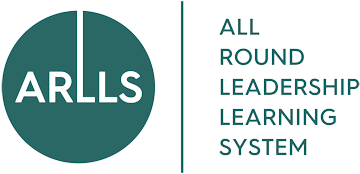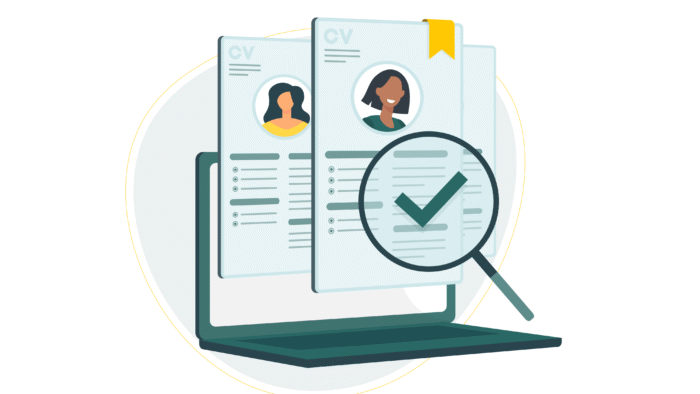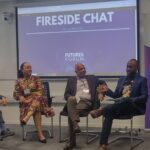By 2030, the global education market is expected to hit a staggering $10 trillion. That’s twelve zeros invested in the business of learning, shaping the world’s future builders, thinkers, employers, and dreamers (HolonIQ, 2018). On paper, it’s a bold figure, but when placed against the global GDP, it represents just 4.3% (O’Neill, 2025). While this falls within UNESCO’s recommended spending range of 4–6%, it raises an essential question: Is it enough, especially for regions experiencing rapid population growth, urbanisation, and rising youth potential?
Nowhere is this more evident than in Africa.
Sub-Saharan Africa is home to the youngest population on Earth, with over 60% of the continent’s demographic under 25. By 2050, one in four people globally will be African. The continent is not only demographically poised to shape the future; it is demographically destined to. (The Guardian, 2022).
But here lies the paradox: while African youth stand ready to leap forward, the systems meant to educate them are weighed down by inertia. Across the globe, education systems are being pulled backwards, tethered by political agendas, austerity measures, and rigid exam-centric models that no longer serve the world we live in. Yet nowhere is the dissonance more striking than in Africa, where the stakes are amplified by exponential population growth, economic precarity, and the urgent promise of a generational dividend.
Despite a world shifting beneath our feet, automation, AI, climate migration, and rising mental health crises, many education models remain tethered to legacy systems that prize performance over purpose, and compliance over critical thought. As the ground moves, the classroom stands still.
What if the real question isn’t whether our systems are ready for the future, but whether we, as educators, lifelong learners, and mentors, are willing to redefine what it truly means to be educated?
A World Economic Forum report warns that 44% of core job skills will shift by 2027 (World Economic Forum, 2025). Employers consistently highlight the “Skills Gap,” particularly in soft skills like critical thinking, emotional intelligence, resilience, and adaptability. These are not luxuries, they are survival skills for the modern learner, whose future will be shaped by community shifts and global challenges. About 70% of the jobs that will exist in 2030 do not exist today (The Hindu, 2024). As the demands of the workforce and society evolve at breakneck speed, we must ask ourselves: are our education systems evolving alongside them?
In Kenya, the Competency-Based Curriculum (CBC) was launched in 2017 with the promise of revolution: to shift away from rote memorisation and toward creativity, critical thinking, and real-world readiness (JEPA Africa, 2024). But the economic realities of the education ecosystem may have doomed that vision from the start.
The CBC asks schools to be more hands-on, more experiential, more learner-driven. But this model, inherently resource-intensive, assumes a level of infrastructural equity that simply doesn’t exist. For well-resourced private institutions, CBC is a runway for innovation. For underfunded public schools, where teachers often juggle overcrowded classrooms and lack even basic materials, it becomes an added burden dressed as reform.
Get your notepads out, because we’ll say it: the CBC often demands a 21st-century approach from a 20th-century system with 19th-century tools.
What’s often missed in this conversation is the quiet privatisation of public education under the guise of progressive reform. When parents must increasingly subsidise basic classroom needs, and when academic success becomes reliant on resources outside the classroom, the public education mandate begins to erode. The CBC may have intended to democratise learning, but without equal footing, it risks doing the opposite, turning inequality into innovation’s shadow.
This issue is not solely confined to emerging economies.
In developed economies, education is buckling under the weight of outdated frameworks and regressive policy decisions. While these systems once led the world in progressive thinking, they now find themselves struggling against a tide of systemic inertia. Curricula are increasingly being pulled back toward rigid assessments, standardised testing, and an overemphasis on rote learning. These trends are not just driven by political influence, but also by institutional conservatism, public accountability pressures, and a deep-rooted preference for measurable outcomes over meaningful learning.
The modern world calls for agile thinkers, adaptable minds, and resilient leaders, yet the system remains fixated on measurable outcomes from a bygone era. In the UK, a nation once synonymous with educational innovation, the curriculum has narrowed over the past decade. Subjects like the arts, humanities, and social sciences have seen significant reductions, while the focus has shifted to STEM and exam-based assessments (European Journal of Futures Research, 2016). This emphasis on exam scores, while seemingly a step toward “raising standards,” overlooks the deeper need for adaptable, critical thinkers.
This systemic inertia has left students ill-equipped to navigate today’s dynamic job market, where agility, innovation, and resilience are more valuable than ever. British employers are no longer just reporting a “skills gap”; they are sounding the alarm (Rigby, 2025). The skills young people are graduating with often fail to meet the real-world demands of a workforce undergoing rapid transformation. As Martha Lane Fox, Chancellor of The Open University and President of the British Chambers of Commerce, aptly puts it:
“Despite tiny green shoots of improvement, the skills gap in the UK remains stubbornly high across sectors…By fostering innovative strategies and inclusive initiatives, we can bridge the skills gap and build a more resilient workforce.” (Lane Fox, 2024)
Yet this call for innovation rings hollow unless education systems are willing to confront their own inertia. If our models remain tethered to past definitions of success, we risk leaving an entire generation unprepared, not for jobs that don’t exist yet, but for the reality that already has.
As education in the UK (and across the world) continues to rely on traditional frameworks and standardised metrics like exam results, we must consider: are we preparing students for the future of work, where adaptability, critical thinking, and complex problem-solving are essential, or are we merely reinforcing a narrow focus on technical proficiency that fails to address the broader, ever-evolving needs of a globalised society and economy?
Education is at a crossroads. It can continue churning out graduates who are memorising answers for a test in a world where large volumes of answers are accessed in seconds, or it can begin to cultivate leaders who are equipped to solve the problems of tomorrow. The future is not waiting for us to catch up; it’s already here. The question stands: Will education systems adapt in time?
We believe every learner is a leader in the making. Leadership isn’t a title, it’s a mindset. It’s the ability to navigate complexity, think critically, collaborate with empathy, and act with purpose, whether in business, community, or innovation. Our programs nurture this with digital-first modules rooted in African realities, but global in relevance.
As we approach Africa Unity Day on May 25th, we reflect on the strength and potential of the youth of today in an ever-developing climate. But this reflection must lead to global action. The question isn’t just whether we are preparing students for the future, it’s whether we are even preparing them to survive the world they are inheriting.
At ARLLS, we are committed to shaping the next generation of leaders. Join us in reimagining what education must become, because the solutions to the world’s challenges won’t come from yesterday’s model. They will come from the minds we are shaping today.
Works Cited
- “About 70% of the Jobs That Will Exist in 2030 Do Not Exist Today.” The Hindu, 12 Aug. 2024, https://www.thehindu.com/news/cities/chennai/about-70-of-the-jobs-that-will-exist-in-2030-do-not-exist-today/article68516881.ece.
- European Journal of Futures Research. “Educational change, inertia and potential futures.” European Journal of Futures Research, 2016.
- HolonIQ. “The $10 Trillion Global Education Market in 2030.” HolonIQ, 2018, https://www.holoniq.com/notes/10-trillion-global-education-market-in-2030/.
- JEPA Africa. “Chalk & Change: Comparing the Efficacy of Uganda & Kenya’s National Curriculums.” JEPA Africa, 2024, https://www.jepaafrica.com/insights/0tlbk7svwtzd7iibkv99btyg11i0wj.
- Lane Fox, Baroness Martha. Business Barometer 2024 Report, The Open University, 2024.
- O’Neill, Aaron. “Global Gross Domestic Product (GDP) at Current Prices from 1985 to 2029.” Statista, 10 Jan. 2025, https://www.statista.com/statistics/268750/global-gross-domestic-product-gdp/.
- Rigby, Steve. “Why business should step up to fill gaps in our education system.” The Times, 28 April 2025.
- The Guardian. “By 2050, a Quarter of the World’s People Will Be African – This Will Shape Our Future.” The Guardian, 20 Jan. 2022, https://www.theguardian.com/global-development/2022/jan/20/by-2050-a-quarter-of-the-worlds-people-will-be-african-this-will-shape-our-future.
- World Economic Forum. Future of Jobs Report, Jan. 2025.



